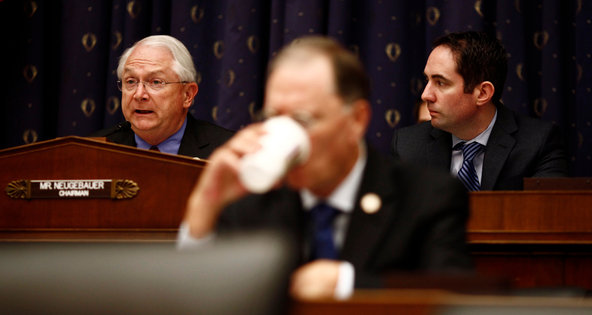Now the German central bank wants to make a big withdrawal — 300 tons in all.
On Wednesday, the Bundesbank said that it would begin moving some of the reserves, the second-largest stock in the world after that of the United States. The goal is to house more than 50 percent of German gold in Bundesbank vaults in Frankfurt by 2020, up from a little less than a third today, the bank said.
Citing security reasons, Carl-Ludwig Thiele, a member of the Bundesbank, declined to say how the transfer would be accomplished or to estimate the cost. But he said the Bundesbank had plenty of experience moving large sums of money.
During the cold war, West Germany followed a policy of storing its gold as far west as possible in case of a Soviet invasion. While that worry is gone, there is still an argument for keeping some gold in financial centers like New York and London. It remains the one currency that is accepted everywhere. In the event of a currency crisis, the gold could be quickly deployed in financial markets to help restore confidence.
The New York Fed stores the German gold without cost on the theory that the presence of foreign gold supports the dollar’s status as the global reserve currency. A spokesman for the New York Fed declined to comment.
The Bundesbank announcement follows a public outcry last year after a clash in Parliament about whether all the bank’s gold was properly accounted for.
For the great many Germans who still rue the day they had to trade their marks for euros, there has been at least one consolation. If the common currency did not work out, Germany still had huge reserves of the hardest currency of all: gold.
Except, as many people learned for the first time last year, it did not — at least not in the country itself.
More than two-thirds of Germany’s gold reserves, valued at 137 billion euros, or $183 billion, is abroad, stored in vaults in New York, Paris and London.
The new policy will include the complete withdrawal of 374 tons of German gold stored at the Banque de France in Paris, about 11 percent of the total. Bundesbank officials were quick to note that the decision was not a reflection of French trustworthiness. Rather, because France and Germany now share the euro, there is no need for reserves as insurance against currency crises.
“The gold in Paris is in the best of hands,” Mr. Thiele said on Wednesday. “We are thankful to the Bank of France for storing it.”
Still, news of the planned transfer caused some clucking in financial circles after news leaked out on Tuesday. “Central banks don’t trust each other?” William H. Gross, a founder and managing director of the investment firm Pimco, asked on Twitter.
Mr. Thiele denied there was any mistrust. “We have no doubts about the integrity of other central banks,” he said. “We’re not aware of any irregularities.”
After World War II, vanquished Germany had no gold reserves. The Nazis had used most of it to finance the war, and much of what was left vanished mysteriously in the postwar chaos.
But as its economy recovered and Germany became the export powerhouse it is today, the country accepted gold as well as dollars from the central banks of its trading partners to cover the financial imbalance created by German trade surpluses.
German reserves peaked in 1968 at about 4,000 tons, several years before the collapse of the so-called Bretton Woods system of fixed international exchange rates, which was underpinned by gold reserves.
The end of Bretton Woods in 1973 eliminated some, though not all, of gold’s importance as a universal currency. The total has fallen to about 3,400 tons after Germany transferred some of its treasure to international institutions in which it participates, including the European Central Bank and the International Monetary Fund.
Mr. Thiele acknowledged that Germans could get emotional about their gold, but he insisted that the Bundesbank made its decision to repatriate the treasure independently and not because of a public outcry last year after reports suggested the gold was not properly accounted for.
The government auditing agency, the Bundesrechnungshof, called on Bundesbank officials in a report to Parliament to conduct an inventory of the thousands of bars of German gold that are stacked in foreign vaults.
Mr. Thiele said that he and other Bundesbank officials personally visited the German gold abroad and that he was satisfied that it was all there.
At a packed news conference, Bundesbank officials attended by armed security guards demonstrated on Wednesday how they tested the bars for quality and authenticity. No two bars have exactly the same weight and purity, so each must be assessed separately.
Even after Germany completes the transfer at the end of 2020, half of its gold will remain abroad — about 37 percent in New York. The Bundesbank does not plan to move any gold out of the Bank of England, which will continue to store 13 percent of the total.
The Bank of England charges about 550,000 euros a year for storage, Bundesbank officials said.
Despite the public criticism, the Bundesbank has not let go of its gold easily. It has continually rejected periodic attempts by political leaders to convert the reserves to cash and has not sold any gold on world markets.
The central bank has, however, sold some of its holding to the public — in the form of commemorative German marks.
Article source: http://www.nytimes.com/2013/01/17/business/global/german-central-bank-to-repatriate-gold-reserves.html?partner=rss&emc=rss
